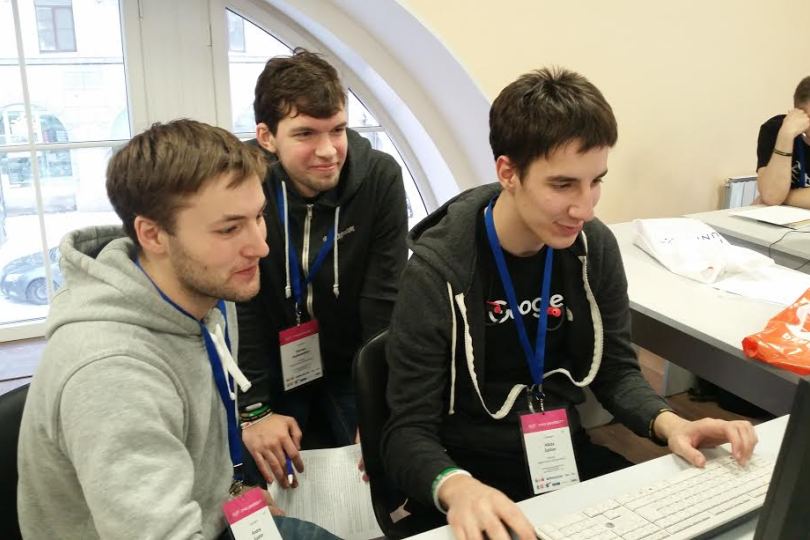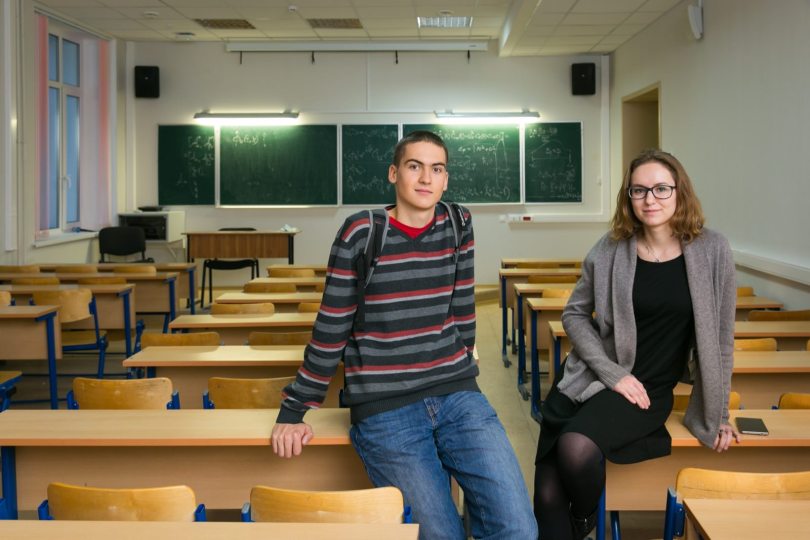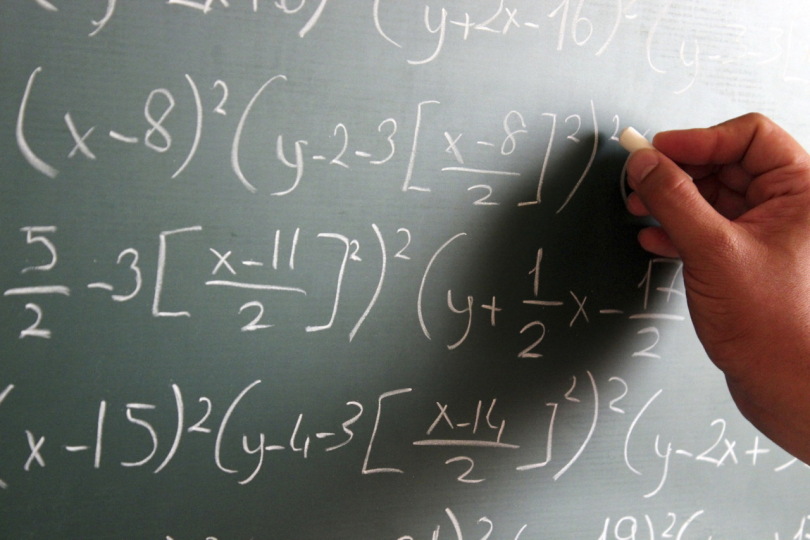'Golden Reference' Recognizes HSE's Most Important Research
HSE and the publishing house Elsevier have inaugurated the Golden Reference award to recognize researchers whose articles are most cited and which have the greatest influence on the development of research and society. Ingrid van de Stadt, Regional Director for Marketing at Elsevier, has talked to HSE News Service about how best to evaluate the quality of academic publications, and what is often left out of this evaluation.

HSE Team Makes it to Finals of World Collegiate Programming Competition
A team from the HSE Faculty of Computer Science was one of the top-ranking teams in the semi-finals of a collegiate programming tournament held in St. Petersburg this year. HSE’s team will now compete in the finals of the ACM International Collegiate Programming Contest, which is set to take place in the United States next May.
International Experts Meet to Advise on HSE Development
The meeting of International Advisory Committee starts December 6. Three newly appointed members of IAC have shared with HSE News Service their views on the role of external consultants in the development of universities, described their reasons for joining the committee and spoke about HSE’s academic reputation and the challenges the university faces.
Examining Educational and Career Choices & Trajectories through the Lens of Culture and Sociology
How are students and graduates adjusting and adapting to the realities in their educational and career trajectories? What role does culture play in the sociology of education? How are attitudes towards higher education changing? These are just some of the many questions being addressed over the course a two-day conference entitled ‘Cultural Sociology and Education: Meanings, Choices and Trajectories’ that is being held on December 1-2 at the HSE Institute of Education in Moscow. HSE News Service has spoken to two conference participants, James Hurlbert of Yale University and Amy Binder from University of California, San Diego.
HSE Becomes One of Seven Russian Universities to Place in THE BRICS & Emerging Economies Top-50
Higher School of Economics (HSE) has placed on the Times Higher Education Ranking for BRICS & Emerging Economies, taking 48th place out of 300 academic institutions.
Fear and Uncertainty Lead to AIDS Denialism
December 1 marked World AIDS Day, the purpose of which is to increase global awareness of the disease. Researchers from HSE’s campus in St. Petersburg have spent the last two years studying a movement of individuals called ‘AIDS dissidents,’ or people who deny the existence of AIDS. Peter Meylakhs, Senior Research Fellow with the International Centre for Health Economics, Management, and Policy at HSE St. Petersburg, discusses some of his research results below.
HSE Alumnus Maksim Oreshkin Appointed New Minister of Economic Development
Russian President Vladimir Putin has appointed Maksim Oreshkin as the country’s new Minister of Economic Development. Oreshkin is the former Deputy Minister of Finance and a graduate of the Higher School of Economics.

Where Mathematicians Are Made
This summer, the HSE Faculty of Mathematics moved into a new building on Usacheva Street. As part of the Open House project, two HSE students – Petr Ogarok, a second-year student in the Mathematics programme, and Anastasia Matveeva, a first-year master’s student in the Mathematics and Mathematical Physics programme – gave an excursion around the new building.
Registration Opens for Optional Courses Starting in Second Half of 2016/17 Academic Year
From December 1 to 20, registration will be held for HSE’s Open Optional Courses, slated to start in the second half of the 2016/2017 academic year. Per tradition, these courses will be free of charge and open not only to HSE students, but also anybody interested in expanding their knowledge.

Why Maths at Schools Shouldn’t Be Simplified
A good knowledge of algebra and geometry helps schoolchildren to solve some other types of tasks, including applied ones. These are the findings made by researchers from HSE, Stanford, and Michigan State University in a joint study.

